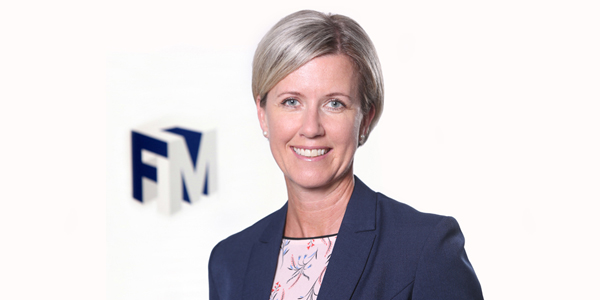Carla Seely Column: Money Tips For Graduates
[Written by Carla Seely]
WOW! You finally did it—you finished your university degree and you’re ready to take on the world!
University gives you the education and confidence to dream big and believe anything is possible, and it provides you with the platform to launch yourself into a career. So where do you go from here? Head back to your island home in Bermuda, or try to land that dream job in the Big Apple?
The reality is that many graduates who find employment seem to struggle in two main areas:
- 1. The transition from student to employee
- 2. Managing money after being a student for years
The first, the transition from student to employee, is a process; it’s not a skill that can be taught, rather it’s an evolution over a period of time.
The second, managing money, is a life skill and it’s something that must be learned quickly to ensure your early working years are as financially productive as your later ones. I’m sure we’ve all heard someone in their fifties say, “If only I’d known how to manage money better when I was younger, I’d have more savings!”
Taking the time to manage your money better can really pay off in the long run. It can help you stay on top of your bills and put money into your savings each year. You can use these extra savings to pay off any student loans that you might have accumulated, and/or make extra contributions to your pension plan.
Did you know the majority of households keep a regular budget? Therefore, the first step to taking control of your finances is by creating a budget and it will take a little effort, but it’s a great way to get a quick snapshot of the money you have coming in and going out, and when you apply this approach fresh out of university, you’re well ahead of the game!
When you create and follow a budget, you’re ultimately creating a road map for financial freedom, and you’re also:
- Less likely to end up in debt
- Less likely to be financially strapped when unexpected costs arise
- More likely to be approved for a mortgage
- More likely to put extra money away for retirement
To get started on your budget, you’ll need to work out how much you spend on the following:
- Housing
- Transportation
- Insurance
- Food
- Entertainment
- Debt
- Savings
A great way to set up a budget is by using a spreadsheet, which will also allow you to save and track it over time. Another great website that will help you create a budget is www.fmgroup.bm – pension tools.
Now, if you’re a typical graduate, you probably have some student debt right out of the starting gate. If you have loans or owe money on credit cards, it usually makes sense to pay off the debt that charges the highest interest rate first.
Even if you’re focusing on paying off another debt first, you must make at least the minimum payment on any credit cards as well as the required monthly payments on any other loans. If you don’t meet the minimum repayment amount, it will go toward a negative mark on your credit rating, which could eventually cause problems when you need to borrow for major purchases such as a home.
Lastly, set a savings goal as soon as you get your first pay cheque and stick to it. Once you’ve figured out your budget and have determined that you have extra funds available monthly, let your employer know that you wish to make voluntary contributions to your pension plan. Even if it’s only an extra 1% a month coming off your pay cheque and going into your pension, it will pay off in the long run. The great news about voluntary contributions is they are not locked in, so in the event of an emergency, you’ll be able to access them [depending on your company pension plan rules].
Taking control of your finances from day one will make all the difference, and in the long run, it will provide you with the financial freedom most of us strive for.
- Carla Seely is the Vice President of Pension, Life and Investments at Freisenbruch-Meyer. If you would like any further details, please contact her at cseely@fmgroup.bm or call +1 441 297 8686.
20 Most Recent Opinion Columns
- 02 Dec: Column: ‘Effects Of Flawed Airport Deal’
- 02 Dec: Column: Finances, Economy, Inflation & More
- 01 Dec: Column: Working Hard On Behalf Of Workers
- 29 Nov: Column: Susan Jackson On Domestic Violence
- 27 Nov: Column: Youth Unemployment, Creatives & More
- 25 Nov: Column: Elimination Of Violence Against Women
- 24 Nov: Column: Govt Should Make The Tough Choices
- 24 Nov: Column: Opportunities For Our Young People
- 23 Nov: Carla Seely Column: How To Manage Your Debt
- 23 Nov: Column: Immigration Policies & Initiatives
- 19 Nov: Column: Cunningham On Labour & Immigration
- 18 Nov: Column: OBA Reply Was ‘Same Old Attacks’
- 17 Nov: Column: A New Marina For St. George’s
- 16 Nov: Column: The Importance of Social Dialogue
- 16 Nov: Column: MP Crystal Caesar On Inflation
- 14 Nov: Column: Impact Of Climate Change In Bermuda
- 09 Nov: Column: MP Scott Pearman On Throne Speech
- 05 Nov: Column: Senator Simmons On Climate Change
- 04 Nov: Column: The Jobs Situation In Bermuda
- 02 Nov: Column: The Clarence Hill Sports Arena
Opinion columns reflect the views of the writer, and not those of Bernews Ltd. To submit an Opinion Column/Letter to the Editor, please email info@bernews.com. Bernews welcomes submissions, and while there are no length restrictions, all columns must be signed by the writer’s real name.
-


